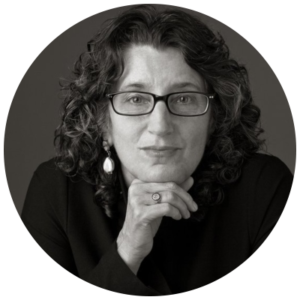Inhabiting Our Bodies with Kindness, and Facing Climate Change
posted by Elizabeth Scott / January 16, 2020

Elizabeth, Elizabeth’s mom Lynn, Connie’s mom Andrea, Connie
Joanna talks about three levels of activity that support positive change during this Time of the Great Turning:
- Activists on the front lines taking direct, non-violent action to insist upon immediate and practical, measures to end carbon pollution now.
- People who support the activists with planning, logistics and money.
- Healers who help everyone stay well—mentally, physically, and spiritually.
Roger Hallam, the brilliant co-founder of the Extinction Rebellion in England, has studied effective activism strategies in great depth. He promotes non-violent civil disobedience to help all of us wake up and declare climate emergency now so that we can move towards solutions in time. In his practical and hopeful book, Common Sense for the 21st Century (2), he states that only five percent of the population must be involved in civil disobedience to be effective. He acknowledges that most of the people on the front lines will be high school and college-aged individuals, and encourages us to include children and old people in direct actions because they evoke so much care in others.
I am encouraged to know that if we can mobilize just five percent of the population to act, we can demand that governments world-wide take our climate situation seriously and implement the solutions needed to save this planet. We should not despair, but instead be brave. It is the young people who will be facing the climate crisis in their generation. They will be the ones needed to make up the majority of that five percent of the population taking radical, peaceful action to demand honest, wise solutions for a sustainable future.
It makes sense to support these young people now, to help them find freedom from a pre-occupation with their bodies so that they can look out at the world and harness their strength and passion for what is needed ahead.
Thanissara (3), another Buddhist teacher and environmentalist I admire very much, offers these simple steps to support our psychological capacity to mobilize protection for our beloved earth:
1. Allow yourself to feel in your body how you are impacted by climate and environmental breakdown. Practice being kind to yourself as you work with feelings of shock, anger and grief.
2. Notice the ways you fall into patterns of avoidance: making demands, defending yourself with denial, or distracting yourself from facing the difficulties ahead.
3. Reach for an inner well-being. Cultivate self-love. Explore how you can simplify your life by relinquishing the things you do not need and expanding what really matters to you.
4. Join with others in your community to take part in efforts to address climate change. Listen to your intuition to guide you towards the actions that feel most important to you now.
Let’s imagine that we were successful, and the world is green and well, the people loving, connected, aware and cooperative, the animals and all beings thriving again.
Just in the imagining, we can gather strength for the steps we need to take now.
With love,
Elizabeth
(1) Macy, J. (1991). World as Lover, World as Self: Courage for Global Justice and Ecological Renewal. Berkeley, CA. Parallax Press.
(2) Hallam, R. (2019). Common sense for the 21st century: Only nonviolent rebellion can now stop climate breakdown and social collapse. White River Junction, VT: Chelsea Green Publishing.
(3) Thanissara (2015). Time to stand up: An engaged Buddhist manifesto for our earth. Berkeley, CA. North Atlantic Books.
Photo credit: larrydyer.com
 Elizabeth Scott
Elizabeth Scott
Elizabeth Scott LCSW, CEDS-S, is Co-Founder and Director of Training for The Body Positive. She has been practicing psychotherapy for more than two decades in Marin County, CA. She studies Vipassana Meditation, a practical, embodied approach to awakening, which she finds to be an inexhaustible resource for finding joy and purpose in life.
Elizabeth Scott
Elizabeth Scott LCSW, CEDS-S, is Co-Founder and Director of Training for The Body Positive. She has been practicing psychotherapy for more than two decades in Marin County, CA. She studies Vipassana Meditation, a practical, embodied approach to awakening, which she finds to be an inexhaustible resource for finding joy and purpose in life.
